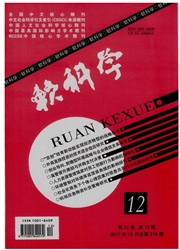

 中文摘要:
中文摘要:
利用加法形式的对数平均Divisia分解方法将我国能源强度变化分解为FDI规模效应,FDI结构效应和GDI结构效应三部分,并进行了实证研究。结果表明:1997-2006年间,FDI规模效应对我国的能源强度起增加作用,FDI结构效应起降低作用,GDI结构效应呈现出与国家投资政策相关联的阶段性。分析结论对我国的节能降耗工作有两点启示:第一,应设置外资进入的技术门槛和进入领域;第二,应设立一定的行业能耗标准,高于标准的投资应予限制。
 英文摘要:
英文摘要:
This paper analyzes the impact of investment on energy intensity shift by a refined Divisia index decomposition method in additive form. China' s energy intensity shift was decomposed into three effects, i. e. , scale effect of FDI ( foreign direct investment) , structure effect of FDI and structure effect of GDI ( gross domestic, investment) . Empirical results show that in the period of 1997 to 2006, the scale effect of FDI on energy intensity was positive, the structure effect of FDI was negative and the structure effect of GDI was periodic which linked to investment policy. Two suggestions can be got from these results: the first is technology threshold and investment domain of FDI should be established ; the second is investment in high - energy - consuming industries should be limited.
 同期刊论文项目
同期刊论文项目
 同项目期刊论文
同项目期刊论文
 期刊信息
期刊信息
